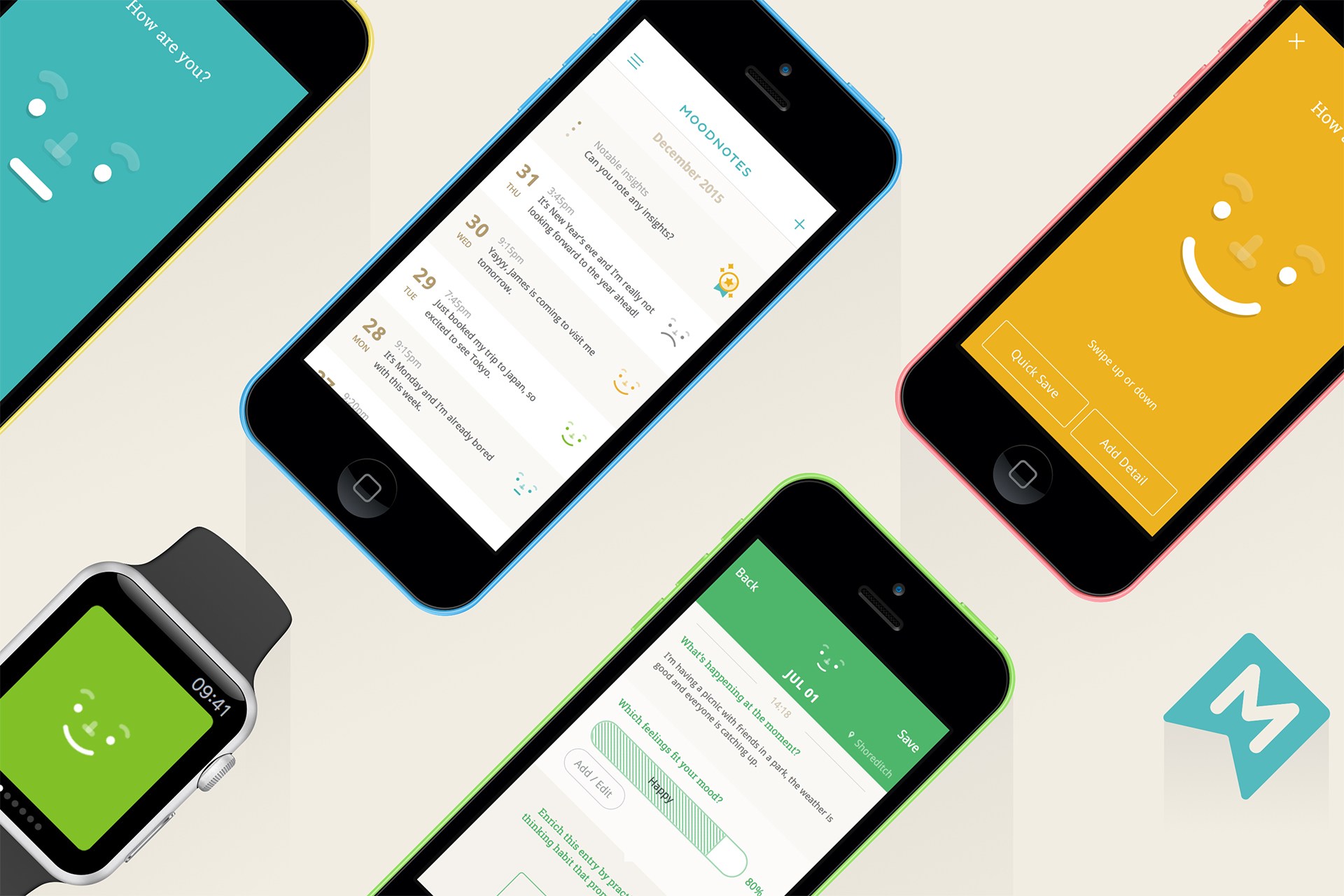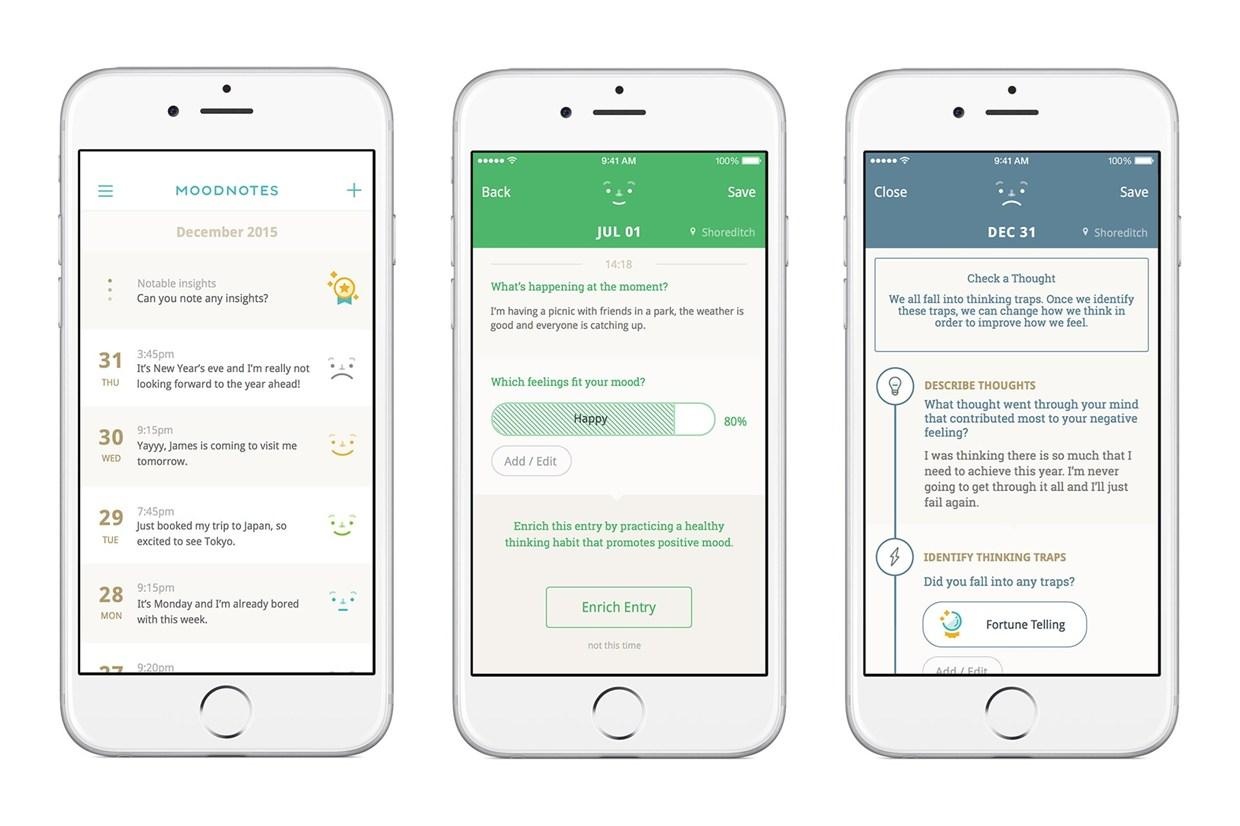Moodnotes is a mood tracking app available on the App Store which has a very interesting twist. It’s made by an American design studio called ustwo which normally “works with big brands to solve huge problems”. On the side, it also makes some of the most well designed apps available on the iPhone, first the seminal mobile game Monument Valley and now this app, Moodnotes.
First of all, journaling is an excellent habit to adopt. It allows you to get used to not only writing, but also crystallizing thoughts into written word which isn’t always easy. The benefits of journaling are as well documented as they are numerous, which is why famously productive people often recommend recording your thoughts on a regular basis. But what Moodnotes does takes it one step beyond just chronicling your mood, with a unique feature that’s designed to not only receive input from the user, but to promote mental well-being through the use of Cognitive Behavior Therapy, or CBT. Here’s how it works.

How Moodnotes Uses Cognitive Behavior Therapy
Designed by two clinical psychologists, Moodnotes is made to cultivate the habit of healthy thinking. It means looking at challenges and situations in a productive and constructive light, which makes overcoming them more easy and more likely. Each day the app prompts you to record some information about what you’re doing and how you feel about it. You can go into as much detail as you like, but what happens is that Moodnotes responds to your mood and offers guidance.
If you indicate that you’re exhausted or frustrated, Moodnotes will identify potential traps of negative thought that you may have fallen into. I was amazed to discover how accurate many of the traps of negative thinking I had fallen into myself. Along with these are suggestions on how to re-contextualize challenges that you face and to view things from a more constructive angle.

What I’ve found through using this app every day for about a month now, is that it has increased my sense of self-awareness. I am more conscious of not only my mood, but more actively eliminate negative thoughts which often become a burden to problem solving. Which is of course what Moodnotes is all about: reducing stress and enhancing your sense of well being.
Common Thinking Traps
One of the most interesting facets of Moodnotes is the thinking traps which it describes and explains. When you’re in a bad mood and looking at obstacles in a negative light, these are frequently present, to a degree that I didn’t realize previously. Some examples of these thinking traps:
- Fortune-telling: when we predict that things will end badly, without actually knowing the outcome
- Black-and-white thinking: when we only look at situations as having a positive or negative outcome
- Mind-reading: when we assume what others think of us, often that they are thinking the worst thing we can imagine
- Over-generalization: when we use words like always and never to describe situations or events
- Labelling: describing ourselves with a single word, often negatively, when the reality is that we are complex and cannot be summed up with a single word
- Over-estimating danger: when we imagine that the worst-case scenario is right around the corner
- Catastrophizing: when we only acknowledge the bad things that might happen while ignoring the good
Once you learn about these thinking traps, you start to see them a lot. In friends, family, colleagues, and likely in yourself. Understanding and identifying them is the first step to eliminating them, and Moodnotes will alert you to potential thinking traps when it detects them.
Conclusion
The potential benefit offered by using Moodnotes is easily great enough to justify the few moments of time a day that it asks. After about two weeks of inputting a small amount of data everyday, using Moodnotes became second nature for me, and now it houses a useful collection of mood data which I can refer to.
As with Monument Valley, Moodnotes is remarkably well designed. Unlike Monument Valley, it’s not designed to be a showpiece, but a functional tool that encourages you to develop the habit of using it on a daily basis. In use Moodnotes is a joy to interact with.
I’m happy to see that like Monument Valley, Moodnotes is routinely recommended by mainstream media like The Guardian and Wired. It’s a tool that I recommend also.

